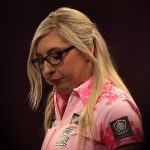Donald Trump seemed to win the judicial lottery when his newest criminal case — a 37-count indictment for hoarding classified documents and obstructing a grand jury probe — landed before U.S. District Court Judge Aileen Cannon.
Cannon, a Trump appointee confirmed to the federal bench just days after Trump lost his reelection bid, ruled deferentially for Trump last summer when he contested the FBI’s seizure of some of those very documents. Legal experts described Cannon’s pro-Trump rulings at the time as audacious and even lawless, and a conservative appeals-court panel (which itself consisted of two other Trump appointees) quickly overruled her.
Now, Cannon will be in an even more powerful position to steer Trump’s legal fortunes. After special counsel Jack Smith obtained an indictment in the Southern District of Florida, about seven active judges in the district appeared eligible to preside over the case. In an apparently random twist of fate, the court’s computerized assignment system allocated the case to Cannon.
She is not expected to handle Trump’s initial court appearance on Tuesday; that will take place in front of a magistrate judge. But Cannon is expected to have control of the case in the weeks and months ahead (unless she heeds the calls of some ethics experts who are already saying she should step aside).
As the presiding judge, she will resolve an array of pretrial disputes on everything from the admissibility of evidence to jury-selection procedures to the timing of a trial to the validity of the case itself. Here’s a look at the key issues that will be in Cannon’s purview, any of which could become decisive in the first-ever federal prosecution of a former president.
The pace of the case
Cannon can decide how quickly or slowly to move proceedings along — with the key benchmark being whether a trial can conceivably take place ahead of the 2024 election. One of the earliest decisions she’ll make is to ballpark a trial date and set a rough schedule for future proceedings.
If prosecutors seek a “speedy trial” — as Smith pledged to pursue last week — and Trump asks for a significantly longer windup, Cannon can determine which side the schedule will favor.
“As the trial judge, she has almost unfettered discretion on how to operate her courtroom, schedule deadlines, hear arguments and obviously enter rulings, many of which, given the nature of this case, can’t be immediately appealed,” said Mark Zaid, a veteran national security lawyer. “There are so many ‘little’ things she can do without any real oversight that can have significant substantive impact on how this prosecution plays out.”
Looming over it all is the 2024 presidential election, in which Trump expects to be on the ballot. If he were to win the presidential election while his trial remains pending, he could be in a position to influence his own legal fortunes upon taking office, through an unprecedented self-pardon or naming an attorney general who would drop the case.
But a trial this complicated, by nature, could take a year or more to get underway, given the complexity of the evidence, the volume of classified material and the mountain of pretrial motions both sides are likely to file about what evidence should be included or barred. Trump and the Justice Department are likely to arrive in Miami on Tuesday with a recommended timeline.
Steve Ryan, a veteran criminal defense attorney, said Cannon is going to have to show she can control her courtroom and keep the lawyers on track — particularly after the perception of her handling of Trump’s case last year.
“I think of John Sirica, who handled the circus of Watergate,” Ryan said. “He had that sort of a temperament … You have to listen courteously, but at the end of the day, you have to keep control of your courtroom, get this case to trial as quickly as is fair.”
Jury selection
This is perhaps the most significant part of the trial in a case this extraordinary. The prospect of finding 16 or more people — federal juries typically include 12 jurors and four alternates — who can set aside political feelings about Trump to render an impartial verdict is already a Herculean task.
Cannon will set out a process to help vet what is certain to be an enormous jury pool, a process that could include multiple rounds of questionnaires, in-person questioning known as “voir dire” and a chance for both parties to exercise “peremptory strikes” — unilaterally removing a predetermined number of jurors they have misgivings about.
“Voir dire is really a big one, because the judge makes decisions about which jurors are dismissed for cause, and if that is done in a one-sided way, it can really put the prosecution in a bind,” said Joyce Vance, a former U.S. attorney from Alabama. “It can force them to spend all of their strikes on prospective jurors, who really should have gone for cause.”
In high-profile criminal cases related to the Jan. 6 attack on the Capitol, jury selection has taken a week or more, with both parties laboring to whittle down hundreds of candidates into a smaller pool of potential jurors who pledge to sit in impartial judgment.
Jan. 6, of course, was in many ways about Trump himself, and lawyers in those cases pressed potential jurors about their views of the former president and whether they could fairly judge the evidence in a case against those who fiercely backed Trump’s bid to subvert the election. In a criminal case against Trump, finding a jury whose views won’t cloud the verdict could be an even taller order.
Pretrial motions
Trump’s defense may hinge on keeping out reams of evidence the government has amassed or kicking up dirt at the prosecution and how the case was investigated prior to the indictment. Cannon will have the first crack at ruling on Trump’s claims of selective prosecution or prosecutorial misconduct related to the search of his Mar-a-Lago home. Trump is also certain to seek to exclude evidence obtained from his attorney, Evan Corcoran, following a Washington D.C. federal judge’s decision to pierce Trump’s attorney-client privilege under the so-called crime-fraud exception.
“If she were to grant a motion to suppress the evidence obtained in the search, for example, that would really gut the case,” said Barb McQuade, a former U.S. attorney from Eastern Michigan. “Similarly, she could suppress the testimony of Evan Corcoran, making her own independent decision that the crime-fraud exception does not apply in this case.”
Notably, the Justice Department can appeal unfavorable pretrial motions, but doing so would also come with a cost: Delay. Any appeal could take days or weeks to resolve and conflict with the government’s attempt to bring the matter to trial quickly.
Admissible evidence
Even in a run-of-the-mill criminal matter, the process of evidence-sharing among parties can be a fraught and decisive early phase. Here, with every syllable under intense scrutiny, Cannon’s decisions on the so-called “discovery” process could be paramount.
She’ll have to decide what evidence Trump is entitled to receive from the government — what will fulfill prosecutors’ obligation for Trump to see the case arrayed against him to help him prepare a fulsome defense. And then she’ll have to decide which of that large cache of evidence is actually admissible in trial.
“Letting evidence in, keeping evidence out. That ability to control the evidence presented to a jury is a powerful tool for any judge,” said Gene Rossi, a former Justice Department criminal and civil attorney who has tried 90 jury trials.
In addition to setting the parameters of the evidence she allows, Cannon will have to dispense with what is sure to be a massive set of pretrial motions — particularly from Trump, who’s likely to raise every argument his lawyers can imagine to try to weaken, or delay, the prosecution’s case.
Classified information
Unlike most criminal prosecutions, the Justice Department’s case against Trump rests on an extraordinary amount of classified material, some of which implicates the most sensitive secrets the government possesses. Trump, who is facing 31 counts of “willfully retaining” military secrets, is sure to demand as much declassification of that material as possible as he defends himself. Prosecutors — in consultation with intelligence agencies and other parts of the federal government — have to make tradeoffs about what they’re willing to disclose and what would present too great a risk to national security.
The will be “lots of litigation, lots of hearings, sealed proceedings, lots of back and forth with the intelligence community and the affected agencies,” said John Barrett, a St. John’s University law professor who worked as associate independent counsel during the Iran-Contra prosecutions, which also involved voluminous classified information.
Barrett said it’s conceivable that the intelligence community has already agreed to declassify the 31 documents in question — not necessarily because they have no national security value but because their value may already have been compromised or because they view deterrence as an equally significant goal.
Rule 29 acquittal
Like all federal judges, Cannon has the discretion to grant Trump an acquittal on any of the 37 counts he faces — or on all of them — at the conclusion of the government’s case or after any defense Trump’s lawyers may put on. Such a ruling — under Rule 29 of the Federal Rules of Criminal Procedure — would amount to the judge’s declaration that the government failed to prove a key element or elements of its case and that no reasonable jury could find the former president guilty based on the evidence presented.
Defense motions under Rule 29 are routine, but judges rarely throw out an entire case under this mechanism. What makes the trial judge’s power on such motions particularly weighty is that it is unreviewable. There’s no appeal for the government against an acquittal during the trial. Some judges “reserve” on the motion until the trial is complete, which makes the question moot if the defendant is acquitted by the jury. If Cannon grants Trump’s acquittal motion after a jury votes to convict, then the government could appeal.
Sentencing
Should the case reach the sentencing phase, Cannon will be responsible for fashioning a just sentence. Federal judges are required to consider a variety of factors when they issue sentences, including the “nature and circumstances” of the offense, the history and characteristics of the defendant and the need to deter future crimes.
But perhaps the most significant sentencing factors in this case will be avoiding unwarranted sentencing disparities. While no former president has been charged or convicted of a federal criminal offense, many people have faced prosecution under the Espionage Act and for obstruction of justice, and many have served significant sentences for those crimes. Cannon would be required to consider all of those factors to determine an appropriate sentence.







